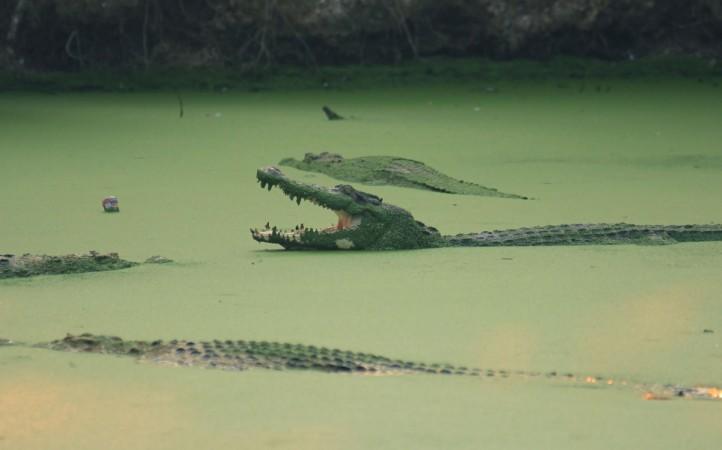
Two Australian men along with their dog were reportedly stranded for four days in crocodile-infested waters in the outbacks of Australia before they were rescued.
The men had apparently gone on a fishing trip to the remote Kimberley region in north-west Australia when their car got stuck in a wetland filled with crocodiles.
Also read: Saved by the bell: Two men trying to sell minor to brothel-owners mistakenly call Delhi Police
This led them to stay and sleep on the roof of their vehicle, according to ABC (Australian Broadcasting Corporation) News. They had to also fend for themselves through six tides that covered the vehicle from time to time.
"They stayed on top of the vehicle and went through about six tides, which covered the vehicle on a number of occasions," Sergeant Mark Balfour, from Broome police, told ABC News.
He added" "Obviously in the Kimberley here you've got to watch the crocs and snakes. And I believe one of the gentlemen said a croc did come close to their vehicle while they were out there, so obviously they were a bit panicky about that."
Reports suggest that the authorities began land and air searches for the men on Monday when they did not return from the weekend trip.
That's how the duo was rescued on Tuesday — "dehydrated but unharmed."
The police said they were so traumatised that they started crying after being rescued.
"They were quite happy to see us and obviously quite upset, crying," the sergeant said.
"Being out there for five days in this kind of country and with the weather being quite hot, I don't know what would have been going through their heads. They were quite fatigued, dehydrated and heat-struck."
Some locals blamed the modern GPS technology, which is making people desperate to explore isolated regions — a move that is leaving increasing numbers of people lost or stranded.
Warren Minshull, a mechanic who helps rescue stranded vehicles, said people are getting more adventurous these days.
He told ABC News: "They can see where they're going these days so they're travelling further distances and getting stuck in places they normally wouldn't go."









!['Had denied Housefull franchise as they wanted me to wear a bikini': Tia Bajpai on turning down bold scripts [Exclusive]](https://data1.ibtimes.co.in/en/full/806605/had-denied-housefull-franchise-they-wanted-me-wear-bikini-tia-bajpai-turning-down-bold.png?w=220&h=138)



